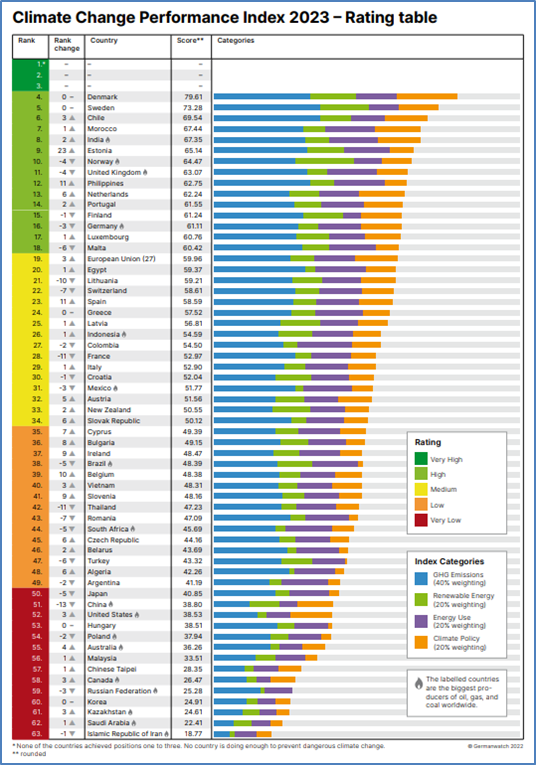The Grapevine - October 16, 2023
 Lisa Lambert (photo at left) was appointed the first-ever CEO of Quantum Industry Canada (QIC) a non-profit consortium committed to advancing Canada’s quantum sector. In March, the federal government invested $1.4 million in QIC as part of Ottawa’s $360-million National Quantum Strategy, aimed at supporting the growth of Canada’s quantum science and technology ecosystem. Launched in October 2020 by a consortium of Canadian quantum tech companies, QIC now has a membership of more than 40 commercial-ready quantum technology and related companies. Canada’s quantum industry is estimated to be a $139-billion industry and account for 209,200 jobs by 2045, according to a study commissioned by the National Research Council of Canada. QIC
Lisa Lambert (photo at left) was appointed the first-ever CEO of Quantum Industry Canada (QIC) a non-profit consortium committed to advancing Canada’s quantum sector. In March, the federal government invested $1.4 million in QIC as part of Ottawa’s $360-million National Quantum Strategy, aimed at supporting the growth of Canada’s quantum science and technology ecosystem. Launched in October 2020 by a consortium of Canadian quantum tech companies, QIC now has a membership of more than 40 commercial-ready quantum technology and related companies. Canada’s quantum industry is estimated to be a $139-billion industry and account for 209,200 jobs by 2045, according to a study commissioned by the National Research Council of Canada. QIC

Carole Jabet (photo at right), scientific director at the Fonds de Recherche du Québec en Santé, and Steven Klein (photo below right) chief business officer at Epitopea, were appointed to the board of directors at CQDM, a not-for-profit bio-pharmaceutical consortium in  Quebec.
Quebec.
Daria Riabinina, director of collaborative research at Quebec government’s Ministry of Economy, Innovation and Energy was appointed to CQDM’s board of directors as an observer. The additions to the board will bring a depth of experience and a wealth of knowledge to the life sciences sector, helping to consolidate and facilitate biopharmaceutical innovation and Quebec and Canada, CQDM said. CQDM
Eric Cerit was promoted to executive vice-president, industry and government relations and membership development at Food, Health & Consumer Products of Canada (FHCP). His responsibilities will include developing FHCP’s new three-year strategic plan. Michi Furya Chang was promoted to executive vice-president, public policy, regulatory affairs and head of divisional strategy. In her new role, Chang will assume strategic and operational oversight of FHCP’s Plant Based Foods of Canada division, while looking to future opportunities to promote regulatory modernization to enable growth and innovation within the industry. Food in Canada
Chris Baker, the new executive director of the Saskatchewan Seed Growers’ Association, comes from a research background with a vision for a high-tech future in farming, including using technology to improve the genome of crop plants. Baker worked for 12 years on livestock vaccine research, including more than decade at Genome Prairie where for five years he was chief scientific officer. He spent another four years at the research and business director for the Global Institute for Food Security. Seed World Canada
Alan Tannenbaum was promoted to the head of the Bank of Montreal’s capital markets division after 13 years at the bank, replacing retiring CEO Dan Barclay. Tannenbaum, who has 25 years of experience on Wall Street, joined BMO in 2010 and has held multiple leadership roles, most recently leading global investment and corporate banking, where he worked with corporate, government and financial sponsor clients worldwide. Before then, he headed the global corporate finance solutions group, where he was responsible for capital raising activities. BMO
Peter Moreland-Giraldeau was appointed by the federal government to the Patented Medicine Prices Review Board (PMPRB) for a five-year term. Moreland-Giraldeau is a lawyer with a Master of Laws: Common Law from the University of British Columbia. In his current work for the Appeals Commission for Alberta Workers’ Compensation, he provides legal advice to the Commission’s general counsel, commissioners and executive. The PMPRB is an independent quasi-judicial body responsible for protecting the interests of Canadian consumers by ensuring the prices of patented medicines sold in Canada are not excessive. Health Canada
Fasken, a Toronto-based law firm, opened its first corporate office on First Nations land, in the “Taza” professional and retail district on Tsuut’ina lands, adjacent to Calgary’s southwest boundary. The Taza, spanning 1,200 acres, is planned to be the largest First Nation development project in North America that connects tenants, customers, and visitors to the Tsuut’ina Nation. Fasken said its new office, located 20 minutes from downtown Calgary, is intended as a platform to establishing new connections between Indigenous and non-Indigenous Peoples. Fasken
CIFAR released its Impact Report 2022/2023 highlighting its programs and achievements in 20 countries, including Canada. CIFAR’s “global communities” now encompass 439 researchers, 223 fellows, 64 advisors, 37 CIFAR Azrieli Global Scholars, 121 Canada CIFAR AI Chairs, and 166 institutions. Ninety-three major awards and honours were received by fellows, advisors, CIFAR Azrieli Global Scholars and Canada CIFAR AI Chairs. CIFAR
Evidence for Democracy, a non-profit that advocates for evidence-based policymaking in government, is launching its new bilingual Essential Guide to Science Advocacy on October 23. The guide is a collaborative project initiated by Nova Scotia Senator Stanley Kutcher and Rémi Quirion, chief scientist of Québec, and developed by Evidence for Democracy with support from the Fonds de recherche du Québec. The launch event will include a panel of experts discussing “What does science advocacy look like today, in a world of echo chambers, misinformation and hyper-polarization? The panelists are Quirion, Kutcher and Dr. Allison Sekuler, PhD, a neuroscientist who holds faculty positions at McMaster University and the University of Toronto. Evidence for Democray
The University of Calgary has transformed its 60-year-old Department of Geoscience into the Department of Earth, Energy, and Environment – the first of its kind in Canada to bring an integrated, transdisciplinary focus cutting across Earth, energy and environment. The new department’s broader focus will enable it to tackle important challenges such as mitigating climate and natural hazards, and securing access to sustainable energy, food, and water resources. The Department of Earth, Energy, and Environment will add new courses and degree programs focused on energy and environmental science alongside updated curricula for earth sciences. The new Energy Science undergraduate program is expected to launch in 2024 and will train scientists on traditional and emerging forms of energy as well as its storage, transmission, and policy implications. UCalgary
An international team of interdisciplinary researchers, including at the University of Waterloo, has developed an innovative method for improved 3D modeling of complex cancers. By combining advanced bioprinting techniques with synthetic structures and microfluidic chips, the team aims to provide a more accurate understanding of heterogeneous tumors, consisting of various types of cancer cells often distributed unpredictably. This approach addresses the limitations of traditional 2D models used by biologists for decades, offering a 3D model that not only replicates tumor complexity but also simulates the surrounding environment. The researchers created polymer microfluidic chips that mimic fluid flow around tumors, grew different types of cancer cells in customized “bioink,” and used an extrusion bioprinter to build a 3D model. The innovation has the potential to advance cancer research, especially in understanding and treating complex cancers like breast cancer, and could lead to more effective and less invasive treatment options. University of Waterloo
Dalhousie University’s Persuasive Computing Lab has developed Recilify, a digital app that uses artificial intelligence and machine learning to offer personalized, evidence-based mental health support based on journal entries and contextual data provided by users. The free app can determine a user's emotional state and which interventions will improve their mood and resilience so they can better cope or adapt. Recilify aims to provide personalized assistance to users, complementing healthcare services, and maintaining user privacy. Currently in beta testing, the app addresses the growing need for accessible mental health support services. Dalhousie University
BC Tech announced nine companies as winners of the 30th annual Technology Impact Awards and inducted eight leaders into the Innovators Hall of Fame at the awards show. The Company of the Year winners, with the category won, are:
- Blanka (Startup), which allows anyone to launch a new beauty brand in under an hour, for less than $200.
- Fatigue Science (Growth), which provides predictive human performance data around sleep. Its Readi platform is used to protect workers and improve productivity across elite sports, military and heavy industry.
- Aspect Biosystems (two awards: Scale,and Gamechanger- Ambition). The UBC spinout is collaborating with Novo Nordisk to develop bio-printed tissue therapeutics designed to replace, repair or supplement biological functions, with the aim of delivering a new class of treatments for diabetes and obesity.
- STEMCELL Technologies (Anchor), Canada’s largest biotechnology company, celebrated its 30th year of accelerating research into cancer and other diseases this year.
- Svante (Climate Leadership), which has made sizeable advancements in the global carbon capture, utilization, and storage space.
- AbCellera ( Excellence in Industry Innovation), a biotech anchor which is building a state-of-the-art biotechnology campus that will include a new preclinical development facility, creating more than 400 highly skilled jobs, as well as new training opportunities in life sciences and biomanufacturing.
- CheckingIn (Gamechanger – Diversity & Inclusion), a mental health and well-being platform that empowers teams with a simple, fast, and approachable tool to assess and respond productively to their feelings.
- Trulioo (Excellence in Company Culture), a global identity verification firm, recognized for its work on employee retention and engagement, diversity and inclusion initiatives, and professional development. BC Tech
The 6th annual Start Alberta Tech Awards recognized 12 individuals and organizations for their success and contributions to Alberta’s innovation ecosystem, and for making a significant impact in the province’s tech sector. Award winners were:
- A100 One to Watch presented by A100: WaitWell
- Most Significant Transaction: CoolIT Systems
- Scaleup of the Year presented by Osler: Neo Financial
- Most Promising Founder presented by Platform Calgary: Chloe Smith of Mercator AI
- Impact Award: PainWorth
- Digital Talent Champion presented by Profound Talent: Tacit Edge
- Venture Capital Association of Alberta (VCAA) Rod Charko Service Award presented by the VCAA: Kylie Woods of Chic Geek
- Ecosystem Supporter of the Year: Platform Calgary
- Woman in Tech presented by Innovate Calgary: Shannon Vander Meulen of WaitWell
- Investor of the Year presented by AEC: Mark Blackwell of Builders VC
- Deal of the Year presented by AEC: Jobber
- Leader of the Year presented by Edmonton Unlimited: Dr. Kristina Rinker of Syantra Start Alberta
Officials with the Prairies-based Protein Industries Canada global innovation cluster visited the U.K., in partnership with Innovate UK and the National Research Council-Industrial Research Assistance Program, with cluster member companies Wamame Foods, CrushDynamics, Griffith Foods and Enhanced Medical Nutrition. The delegation toured the Natural Resources Institute at the University of Greenwich and the University of Lincoln, hosted a panel session at Future Food-Tech London, and held a matchmaking event at Canada House. To continue advancing plant-based food and ingredient innovation, Protein Industries Canada and Innovate UK announced a joint call for collaborative R&D projects from Canadian and UK consortia. Protein Industries Canada
R$
Events For Leaders in
Science, Tech, Innovation, and Policy
Discuss and learn from those in the know at our virtual and in-person events.
See Upcoming Events
You have 0 free articles remaining.
Don't miss out - start your free trial today.
Start your FREE trial Already a member? Log in
By using this website, you agree to our use of cookies. We use cookies to provide you with a great experience and to help our website run effectively in accordance with our Privacy Policy and Terms of Service.





